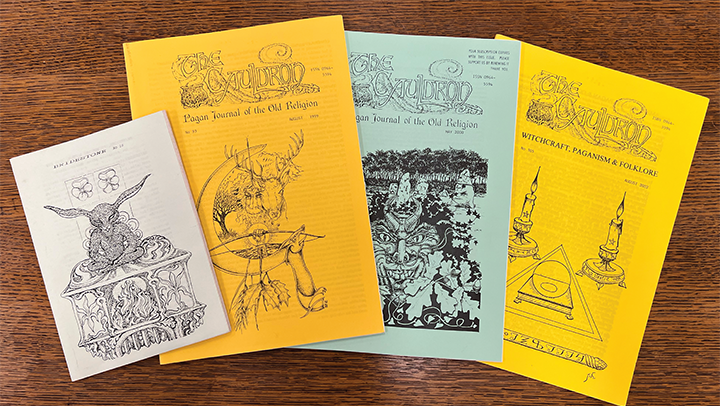Exploring Paganism Through A New Zine Collection

Where can you learn more about the original Halloween? Samhain was first observed by Celtic Pagans and is observed from sunset on October 31 to sunset on November 1 and is the origin of Halloween. Want to know more about pagan customs that are still practiced today? The University Library’s Special Collections and University Archives is proud to feature a new collection of recently acquired materials: the Pagan Zines Collection.
Zines are self-published or small press magazines, usually cheaply produced (often on copiers or home printers) with a small circulation. In the pre-internet era, zines were an important means for like-minded individuals interested in niche topics and subcultures to connect and share information. The Pagan Zines Collection is an addition to our existing Zines and Minicomics Collection.
The Pagan Zines also augment SDSU's larger collection of materials regarding spirituality and religion. This new collection consists of periodicals and books published primarily in the United Kingdom and Europe during the 1980s and 1990s. It represents a wide range of strands within the pagan movement, including Wicca, Druidry, Asatru, Heathenism, Slavic Native Faith, Finnic Native Faith, and similar movements. Topics include cultural history, archaeology, anthropology, folklore, and current events.
While beliefs among pagans vary widely, certain commonalities exist, including a polytheistic or pantheistic belief system, veneration of nature, celebrating dates marking the changing seasons, use of ritual and magic, and traditional medicine. Modern paganism (sometimes called neopaganism or simply paganism) is a movement or group of religions that attempt to revive the polytheistic pre-Christian religions of ancient peoples.
Contemporary paganism was widely popularized in the West with the founding of the Wicca religion by occultist Gerald Gardner. Wicca and other witchcraft traditions still represent the largest branch of paganism practiced today and may be explored through other print and digital collections in the University Library.
The University Archives and Special Collections is open to the public on weekdays from 10 am - 4 pm. Come and learn about what witchcraft is really about - it is not (just) pointy hats and broomsticks!
